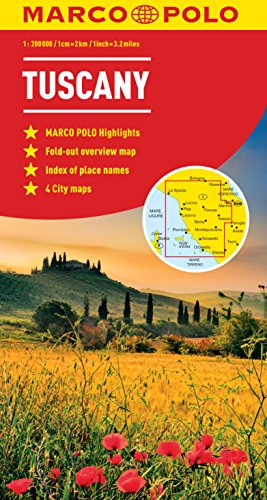Places of interest detailed in our guide
 Airport
Airport Attraction
Attraction City
City Island
Island Landscape
Landscape Airport
Airport Attraction
Attraction City
City Island
Island Landscape
LandscapeIf you are planning your trip to Tuscany, in the interactive map on this page you can find all the places of interest that we recommend you visit and other useful points for your trip, such as airports or islands. Just click on the placeholders on the map, or on the list just below, to go to the in-depth tabs on the single point of interest.
However, if you are used to organising your itineraries with a traditional paper guide, we recommend that you buy one of the following directly from Amazon.





If you are about to discover Tuscany by car and want to always have a detailed paper map at hand, there is nothing better than the dear old road maps. On Amazon you will find the best-selling road maps of Tuscany at prices that are often discounted compared to those you can find in bookshops or petrol stations.





Tuscany is a region located in the central-western part of the Italian peninsula. It is one of the largest regions of central Italy as well as one of the most densely populated; however, it must be said that population density varies considerably from area to area.
The territory of Tuscany is predominantly hilly; about 25 per cent is occupied by the mountainous ranges of the Tuscan-Emilian Apennines, the Apuan Alps and other mountain groups, while less than 10 per cent is flat.
The highest peak in the region is Monte Prado, 2,054 m. The few plains extend along the coastal strip and in a part of the hinterland in the north of the region. The coastline is very varied and includes both long sandy shores and wide stretches of rocky, jagged coastline.
Tuscany is bordered to the south by Latium, to the east by Umbria, Emilia-Romagna and for a very short stretch by Marche, and to the north by Emilia-Romagna and Liguria. To the west it is washed by the Ligurian Sea in the northern part and the Tyrrhenian Sea in the central-southern part.
From an administrative point of view, Tuscany has 10 provinces. From north to south we find Massa and Carrara, Lucca, Pistoia, Prato, Florence, Pisa, Livorno, Arezzo, Siena and Grosseto; since 2015 the province of Florence has become a metropolitan city.
The territory administered by the region also includes the islands of the Tuscan Archipelago.